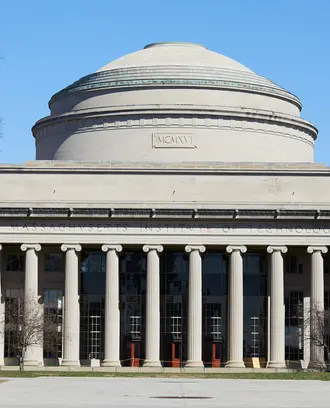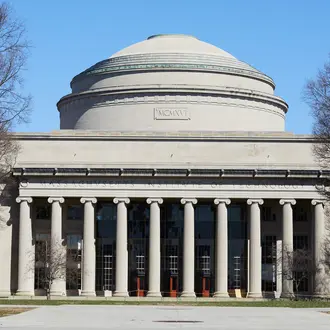Entrepreneurship
Redefining Success: Transitioning from Corporate Leadership to Entrepreneurial Impact
Before enrolling in the MIT Executive MBA, Diane Rucker, EMBA ‘14, had already carved out a successful career in technical management roles at industry giants like General Motors and Seagate. However, she felt constrained by the traditional corporate ladder and sought new ways to leverage her expertise in a more dynamic environment.
Since graduating from the MIT EMBA in 2014, Rucker has redefined what success looks like. She transitioned from the structured world of corporate technology to becoming an influential figure in Minnesota's startup ecosystem. Rucker has held leadership roles, including Executive Director of University Enterprise Laboratories, a nonprofit incubator supporting early-stage ventures in life sciences, biotechnology, and healthcare in St. Paul, Minnesota. She has also become a full-time angel investor, supporting underrepresented founders and early-stage startups across the Midwest. Her work spans entrepreneurial ecosystems, board memberships, and strategic consulting, all aimed at fostering innovation and sustainable growth.
What motivated you to pursue an Executive MBA, and why did you choose MIT Sloan?
Diane Rucker, EMBA '14
I was at a point in my career where I felt like I was on a slow ramp to a plateau, where growth had become incremental rather than transformative. Most of the work I was doing wasn’t work I had trained for or learned as an engineer. I was addressing problems like scale, yield, management effectiveness, and finance—areas where I felt I lacked a solid foundation. I realized that to build the credibility I wanted as an engineer moving into technical management, I needed the broad-based business knowledge that an MBA could provide. It wasn’t just about learning new skills; it was about gaining the confidence to lead in areas beyond my technical expertise. I’d been working at Seagate in technical project management roles, but there was a clear ceiling. MIT was my top choice because, as an undergraduate, I didn’t fully appreciate the incredible opportunities it offered. When I attended my first reunion, I realized how much I had missed and felt compelled to return.
What were your first experiences like in the EMBA program, and how did the diversity of the cohort impact you?
My first experiences in the EMBA program were eye-opening. I was immediately struck by the intentional diversity of the cohort—people from all over the world, representing different industries, backgrounds, and life experiences. This wasn’t accidental; MIT clearly designed the program to bring together individuals who would challenge each other’s perspectives. It was humbling to realize that even though I had years of experience in technical management, there was so much I didn’t know about other sectors like healthcare, finance, or entrepreneurship. The classroom discussions were richer because of this diversity. You’d hear insights from someone who had led military operations sitting next to someone who had launched a startup or managed international supply chains. It pushed me out of my comfort zone and made me rethink how I approached problem-solving and leadership. That diversity of thought was one of the most valuable aspects of the program.
Can you share more about your journey into entrepreneurship?
My pivot into entrepreneurship was not something I had planned. It really started with my work at the Martin Trust Center, which led me to some fascinating consulting roles. One of the most memorable was in Al Ain, a small area outside of Dubai and Abu Dhabi, where I worked with the United Arab Emirates University on building partnerships between research and industry. That experience opened my eyes to new opportunities and helped me understand the global landscape of entrepreneurship.
After that, I became directly involved with startups, working with Carrot Health from 2015 to 2017. Carrot Health introduced me to social determinants of health (SDoH) and the challenges of healthcare, modeling how small changes in lifestyle could change a person’s healthcare outcome. I later moved into independent consulting, focusing on startups and entrepreneurship. It wasn’t a straight path—it was more of a series of connections through friends, alumni, and colleagues. Through networking with Sloan alums in the region, I met people who introduced me to colleagues at the University of Minnesota. Even when I didn’t get a job I interviewed for, I stayed in touch, which eventually led to new opportunities. That mindset shift—seeing networking as a continuous process rather than a one-time event—was key in my entrepreneurial journey.
The MIT EMBA gave me the tools and confidence to embrace this uncertainty. I realized that entrepreneurship isn’t just about starting companies; it’s about identifying opportunities, taking calculated risks, and building ecosystems where innovation can thrive.
How have you applied the ecosystem model and organizational processes (OP) lessons from the EMBA program in your career?
The ecosystem model for startups has been one of the most valuable frameworks I took from the EMBA program. I use it repeatedly to explain my approach to entrepreneurship, emphasizing how the interconnectedness of government, education, corporations, risk capital, and entrepreneurs creates thriving ecosystems. People often find this perspective eye-opening because it shifts the focus from individual strengths to the strength of connections between elements.
Additionally, the Organizational Processes (OP) framework taught me to analyze challenges through multiple lenses—political, social, and cultural. This holistic approach helps me identify barriers to change within organizations and navigate complex environments more effectively. These frameworks have been crucial in both my consulting work and in supporting startups, as they offer a structured way to tackle issues that might otherwise seem overwhelming.
How does your work align with MIT Sloan's mission to improve the world?
Through my roles in entrepreneurship, consulting, and angel investing, I've been able to support underrepresented founders, foster inclusive startup ecosystems, and drive innovation that tackles real-world problems. Whether it’s mentoring early-stage entrepreneurs, investing in companies that prioritize sustainability, or building networks that help ideas flourish, my goal has always been to create positive, lasting impact. The EMBA program instilled in me the belief that leadership isn't just about personal achievement—it's about using your skills and influence to make the world a better place.



